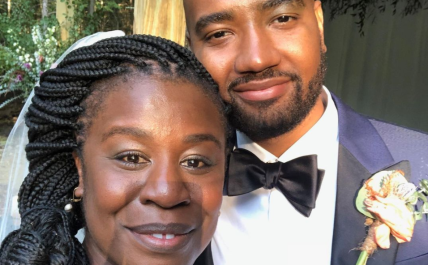Awkwafina ‘open to the conversation’ about her history of AAVE use on-screen
The Asian-American rapper and movie star has been called a hypocrite for vowing not to play "minstrel" roles with stereotypical Asian accents despite repeatedly using AAVE on-screen throughout her career
“I refuse to do accents.”
Rapper and actress Awkwafina firmly stated the above during a 2017 interview with Vice when asked if there were any movie roles she would turn down as an Asian-American woman in Hollywood.

“I make it very clear, I don’t ever go out for auditions where I feel like I’m making a minstrel out of our people,” she added.
The following year in 2018, Awkwafina enjoyed perhaps the biggest year of her career starring in Crazy Rich Asians and Ocean’s 8 — while simultaneously appropriating African-American Vernacular English, or AAVE, for her characters in both films, according to many critics.
When asked bluntly about her mixed-messaging in terms of stereotypical accent use, Awkwafina appeared to struggle to formulate a complete answer during a September interview with CinemaBlend about her latest film, “Shang-Chi and the Legend of the Ten Rings.”
“Um, you know, I’m open to the conversation,” the 33-year-old said. “I think it, you know, it’s really something that is a little bit multi-faceted and layered, and so yeah.”
The appropriation of AAVE by non-Black individuals has appeared to increase in recent years as the language has made its way into the mainstream, largely through digital platforms and often incorrectly referred to simply as “internet slang” or “stan culture.”
theGrio’s Danielle Young cleared up all confusion surrounding the language and who is allowed to use it during an August 2020 episode of her show “Opinionated AF.”
Young explained that the use of AAVE by non-Black people is a form of “cultural appropriation,” defining the term as “the adoption or co-opting, usually without acknowledgment, of cultural identity markers associated with, or originating in minority communities, by people or communities with relatively privileged status.”
She continued to explain a phenomenon called “linguistic prescriptivism,” or the system of rules dictating what a society considers to be “correct” and “incorrect” language, often organized around existing hierarchies of race and other oppressive modes of social organization.
American institutions have historically deemed AAVE an “incorrect” abstraction of Standard American English (SAE), also known as the “King’s English,” despite several examples in world history of officially recognized languages emerging from other languages, such as Haitian or Cape Verdean forms of Creole.
“The age-old colloquialism ‘white is right’ applies to more than just skin color,” Young said. “When, when the racism is institutional and systemic, even the behavior of white people, the language of white people, is what’s considered the standard.”
She added that Black people have always had to find creative ways to work around racialized barriers.
“We’ve had to create a lot of our own everything, including our own language, because our ancestors were banned from speaking their mother tongue, but weren’t even formally taught to speak “proper,” or that blessed Standard American English,” Young said.
She concluded by reading a quote said by the late American novelist and revolutionary Toni Morrison during an interview in 1981.
“It is the thing that Black people love so much—the saying of words, holding them on the tongue, experimenting with them, playing with them,” Morrison said. “It’s a love, a passion.”
“Its function is like a preacher’s: to make you stand up out of your seat, make you lose yourself and hear yourself,” she continued. “The worst of all possible things that could happen would be to lose that language.”
Have you subscribed to theGrio’s “Dear Culture” podcast? Download our newest episodes now!
TheGrio is now on Apple TV, Amazon Fire and Roku. Download theGrio.com today!


